Roofing's Take on Tariffs - PODCAST TRANSCRIPT
April 21, 2025 at 6:00 p.m.Editor's note: The following is the transcript of a live interview with Will Lorenz of General Coatings and Trent Cotney of Adams and Reese. You can read the interview below, listen to the podcast or watch the recording.
Heidi Ellsworth: Hello and welcome to Coffee Conversations. My name is Heidi Ellsworth and this is brought to you by The Coffee Shop and by sponsors like Central States. We are so excited to be here today to talk about a hot topic as everyone knows and that is tariffs, what's happening out there on changes every single day. So, we have brought experts to talk about this today, to really see what's happening, what we should be doing as an industry and what maybe it looks like in the future, but with a few housekeeping things. As you all know, this is being recorded and it will be available within 24 to 48 hours. It's available under the read list and watch navigation. You can find it under Coffee Conversations and please share it. I think these are the conversations that are so important. That's why we put everything on demand so that people can have these conversations later on, talk about it themselves and really get a feel for what some of the experts in the industry are saying.
Heidi Ellsworth: Also, we have the chat open and I see people already coming in. Heather, thank you so much. Rock. Please let us know who you are, where you're calling in from or where you're watching from. If you have any questions, let us know as we go through this. We want to make this very interactive and it doesn't have to be just questions. Do you have some comments? Do you have some thoughts, some things that you want to just get out there as a conversation topic? So, we are open for the entire thing with the chat. We do have, as we bring our guests here, one of our folks who everyone knows very well, Trent Cotney is going to be a few minutes late.
Heidi Ellsworth: He is running from one association meeting and being kind enough to get onto this coffee conversations, so he'll be coming in probably in about 10 minutes or so. So, Will who I'm going to ask to introduce himself right now. Will and I are going to have some conversations starting up front. So, can you introduce yourself and tell us a little bit about your company for those few people who don't know you?
Will Lorenz: Sure. Thank you Heidi. My name is Will Lorenz. I'm president of General Coatings. We're a manufacturer of spray foam roofing products and roof coatings and we've enjoyed always being a part of The Coffee Shop and being a part of industry organizations like NRCA and The Roofing Alliance, just trying to give back and do the right things in the roofing trade.
Heidi Ellsworth: I was so excited, Will, to have you on here, because you are on the Government Affairs Committee for NRCA. I love talking politics and everything else with you and you and I were just in Washington DC last week for Roofing Day. What was some of the feel that you got last week with Roofing Day?
Will Lorenz: Well, first of all, I think it's a fantastic event. I think we all owe a lot to Reed for getting that set up and McCabe and his team for leading it. Dwayne, Debbie and everybody.
Heidi Ellsworth: Terry.
Will Lorenz: Terry, of course.
Heidi Ellsworth: Yeah.
Will Lorenz: Very important with the tariffs and so forth, it just reminds us that our industry needs to come together and act boldly on issues that may impact the roofing industry. Clearly we need to get in front of Congress for a lot of the issues that NRCA put forth, but also we have to get in front of the president and some of the people on the executive side because tariffs, the topic of today is being driven through by the presidential powers and so we've got to continue to act boldly.
Heidi Ellsworth: Yeah, exactly, exactly. Well, Will, I think Trent has absolutely impeccable timing here because Trent, we were just on the introductions. Will and I were starting to talk a little bit about Roofing Day, but I'm just going to flip back here real quick. Trent, if you wouldn't mind, again, as I said with Will for the few people who don't know you, if you could introduce yourself and tell us about your company?
Trent Cotney: Sure. My name's Trent Cotney. I am a partner and construction team leader at Adams & Reese, which is a national law firm. I also serve as general counsel for NRCA Western States for FRSA which I'm actually at now and a variety of other industry trade associations.
Heidi Ellsworth: Yeah, I told everyone that you were at the FRSA meeting. You'd be a little bit late. Thank you so much for doing this, Trent and also for everything you give back to the industry. It is so great. And you know what? I got so excited about this topic. I think at the beginning, I'm not even sure if I introduced myself. I'm Heidi Ellsworth and this is Coffee Conversation, so let's get started. I'm so excited. So, what we kind of did is we pulled together a little bit of just a what's happened so far, what's happening out there and from that then we also want to talk a little bit about the history of tariffs and when it begun. So, let's actually start there. Let's start with some of that history and Trent, I know you were going to start. How did we get here? You've done a lot of speaking since the new year and since the new administration. Can you just give us a brief overview in that direction?
Trent Cotney: Sure, absolutely. So, the two biggest topics of conversation since January have been tariffs and immigration by far. It dominates any conversation that I have, regardless of where I'm at and the tariffs that have been rolled out from the Trump administration. The primary purpose is to provide leverage for purposes of negotiating. There are some desires to bring manufacturing back. There are other secondary issues involved, whether it be a potential revenue source to offset some of the expenses that the government has, that kind of thing. But ultimately, they're used for purposes in negotiation. So, this all came out of originally January 20th during Trump's, as he was signing various executive orders, he had an America first trade policy and that memo sort of revised the idea of a baseline tariff on imports or at least set the predicate for that. Then following up in February 13th, there was another memo that was ordered by their Department of Commerce and some of the subcommittees to look at sliding scale of tariffs based on what the trade situation was for each country.
Trent Cotney: Then within a few weeks ago, we had the big press announcement where there was a variety of tariffs assigned to countries depending on what the trade deficit was and with the idea that there would be negotiations that could be hopefully reduce some of those tariffs or eliminate them or put them on an even playing field. And right now where we are at is we are within that sort of negotiation period. There's been a temporary stay on some of the execution of some of the tariffs. So, we're starting to see some of the countries come to the table. Most recently, I think India announced that there was at least what I would call a letter of intent for some bullet points for a trade policy.
Trent Cotney: What our audience needs to understand is that negotiating a trade deal is like if you asked me and our M&A team to do a one billion dollars mergers and acquisition transaction, right? I mean, it takes forever to get this pencil and put on paper. It is just not something that happens overnight. So, that's kind of high level overview of where we are at now and you can anticipate even as we're talking, there's probably going to be more changes.
Heidi Ellsworth: Yeah and with the 90-day pause that's going on right now and with everything kind of changing day to day, I did want to point out, because Will and I were talking about this at the beginning, Trent, but Will kind some of the history of tariffs with the US of why even some of that history I think is interesting to share.
Will Lorenz: Yes. Yeah. I mean, tariffs go back to the origins of the United States. I believe it goes back to 1789 where they were doing whiskey tariffs and excise taxes. They were trying to protect the American economy there and prevent and also raise some revenue. And over the years, some of these basic tariffs funded the government for years and then I think it was, Trent, was it McKinley, was he the folks that had a strong tariff policy?
Trent Cotney: Yeah, absolutely.
Will Lorenz: And so Trump has taken a lot of those ideas that he can fund the government through raising revenue on tariffs and it ends up being a tax burden for all of us. And so it's quite a challenge, but as a whole, I think there's been unfair tariffs against the United States and so it's one of these things where balance is needed here, both for trade deficit reduction and then also just allowing American goods to go someplace else.
Trent Cotney: The one thing I'd chime in on that, Heidi, is that this is going to wrap up here in the next few months and what I mean by that is we're going to know what's going to happen probably by June or July of this year and let me tell you why, we have midterms coming up. So, regardless of whether you're blue or red or in between, you don't want to rock the boat, because you've got to focus on fundraising and getting ready for midterms and if the Republicans lose the house and or the Senate because of midterm elections, then that's not going to be good for the overall administration.
Trent Cotney: So, what you will absolutely see is that we are in a window right now where there will be a lot going on, a lot of announcements, but I anticipate that the dust will settle on this. It doesn't mean that all the tariffs are going to be gone in June. It just means that you're not going to be seeing this level of activity once you start hitting summer, because it is from a party standpoint, they can't afford to keep pushing at this pace.
Heidi Ellsworth: That's interesting. Go ahead, Will.
Will Lorenz: Oh, I agree completely. I mean, I think as we've seen all presidents in their first term, they come out with their boldest policies in the first three to six months when they have control of the house and Senate in many cases and then they try and change government and then they kind of survive the midterms if they can.
Heidi Ellsworth: So, with that being said, I think this is perfect time to kind of bring it home and we were talking when you came on, Trent, we were talking about Roofing Day and how important Roofing Day was for, we have an interesting question, I won't bring it, but how important that is that we as an industry go and talk to our congressmen and women talk to... I was lucky enough to sit in with the Department of Labor, Laurie Chavez Doremer and really getting how this is affecting us every day, people and industries and everything. So, real quick, we had a question here with Jerry has said midterms are 2026, but they start their fundraising and everything this summer. Is that what you're talking about?
Trent Cotney: Absolutely, absolutely. I mean, you've got to be, if you're running for House of Representatives, you got to be pulling in 300K a month or so just to compete, right? I mean, it is astronomical. You have got to not only have your base and your constituents support you, but you have got to be able to pull in the funds necessary to compete. And if there is too much volatility, if the market's collapsing, if there's all these other negative factors around and you're in a tight race, it's not going to bode well for you. So, things need to start being stable sooner rather than later. There's a long ramp up period, it's not just a month or two in advance, it's basically summer. That's when you really got to start getting geared up.
Heidi Ellsworth: Wow. So, okay, as we're looking at this then, Trent, I would love to, how do you see all of this between steel and aluminum, the universal tack or tariffs and all of those things? How has that going to affect on the roofing industry and what do you see it? I've been seeing a lot churning and so I'm curious what you're seeing.
Trent Cotney: Yeah, I have had word that roofing metals, whether it's coated steel, aluminum coil, that kind of thing, I have seen some price increases just generically 10 to 15 to 20% depending on which type of material structural steel has increased. Obviously, not as impactful for roofing contractors, but I have seen that. Overall, I would say most materials have had a slight increase that's probably plus or minus within margin of error and I think there's still a lot of, I don't think we've seen the full effect of some of the things that are happening with China and some of the baseline imports that are happening, but I definitely anticipate that material prices will increase across the board. I anticipate most manufacturers are probably going to have those pricing adjustments and increases and that will trickle down to distribution and then the contractor and then ultimately the consumer.
Heidi Ellsworth: Yeah. Will, as a manufacturer and as part of, you have a large corporation with many companies in it, what are you seeing as in how this may affect the supply chain or changes in pricing?
Will Lorenz: So, I kind of harken it back to the COVID days when disruption was going supply chain. And so as a supplier you have to one act boldly to try and secure your raw materials and make deals when there are pauses and things like that and then count on the fact that you're going to overstep some of these changes that might occur, because at the end of the day, everything's about timing. If it's what Trent says happens, the tariffs do get imposed at higher levels, then we all going to have to pass on those costs. That's going to be the reality of it, but it's a question of timing as to when that impacts the marketplace and whether or not jobs can be started or finished this summer without as much impact. And that's what we're hoping, we're jumping right now into the roofing season and it's full go and this pause, if we will, is a good thing. It allows many of the roofing materials to get purchased, get distributed, get put up on jobs and have less impact to everybody, including the building owners and homeowners.
Heidi Ellsworth: And one of the- Go ahead, Trent.
Trent Cotney: One of the things to also consider is that most manufacturers and suppliers have run through the excess inventory that was accumulated post-COVID demand, but there is still some of that, right? So, I agree with what we'll say and I think that you're going to see inventories within distribution and manufacturing and production levels return to, there's going to be some level of normalcy. We're just not there yet. I think there's still too much uncertainty to know exactly what's going on. Uncertainty is not a good thing for the economy. It's just we've seen the roller coaster ride that the dial's been on, but ultimately, I think this is going to get to a point here pretty soon, within the next few months where we're going to know what the next few years are going to look like.
Heidi Ellsworth: That will be good.
Will Lorenz: The other thing I'd point out is that the roofing industry is one of those metrics that sort of lags behind the economy in the sense that the roofing industry, if there's going to be a recession or a downturn, it's really much more successful way into the recession versus other industries and then it's kind of a late comer in coming out of it. So, the success of a lot of the projects that are going to be done this year is kind of outside of what's going to go on in the economy, because they've already been planned, they've already been budgeted, people are going to be securing materials, so they're going to be done a lot closer to the cost basis and financing that was established when they were bid.
Heidi Ellsworth: Along this line, one of the things that I've been hearing is that and this is going to kind of go back to probably more China, the tariffs on China and what's happening there, but it could be across the board, is that manufacturers may have to make some changes that could become permanent. Much like when we came out of COVID, right? There were changes. I'm going to start using these materials, because it makes sense, because available and I can do it. I've actually heard of a large manufacturer just recently who probably will not be able to get a certain dye color from China and so they're probably just not going to make that color anymore. And so contractors who I talked to are like, "Great. Just tell us ahead of time, so then we won't sell that color. We will just sell the colors that you have."
Heidi Ellsworth: So, it seems like to me a lot of this is just strong communication, just working way ahead when you see things that this may change forever or just for a short time, but communicating that and how can Trent, as you worked with a lot of manufacturers through the supply chain problems after COVID, how are some of the things that manufacturers, distributors and contractors communication-wise can be doing right now to kind of be ahead of this instead of caught behind it like we were last time?
Trent Cotney: Yeah, I think instantaneous communication to the extent that it can happen. So, putting out notifications that certain lines or certain materials aren't going to be available. Discussing and identifying price increases that may come with a large enough leeway time, so you can adjust contracts and bid accordingly. On the contractor side, that also holds true where regardless of whether you're direct from manufacturer or through distribution, you need to have frequent communications and conversations with your salespeople, your credit managers, the entire team so that you understand what to expect, what is availability going to be like, how are they impacted? And I'm a huge advocate for attending association and other functions. Right now I'm at FRSA Roofing Alliance is going on as we speak as well.
Heidi Ellsworth: We're there.
Trent Cotney: Yeah, there's a lot of incredible organizations and meetings out there. We have the opportunity to break bread with people in the industry that can help inform you of what the latest is. So, that's how I get a lot of my news and I'm sure you guys are the same way.
Heidi Ellsworth: Yeah. Will, [inaudible 00:20:51] excuse me. We saw an increase in systems that maybe were not as traditional but have really kind of, I'm going to say spray foam, right? We've seen an increase in spray foam as a solution going through this. We've seen it on coatings and roof restorations as a way of extending the life of the roof. What do you see, as building owners, contractors are looking at this uncertainty. I think that's the best way to put it, this uncertainty. Are you kind of seeing some of them kind of, "Well, maybe we'll just maintain this roof a little bit longer and wait and see what's going to happen."
Will Lorenz: I think when the stock market was roaring up and down, I think a lot of us got nervous, looked at our 401K's and said, "Wow, can we take that risk? Can we invest in our facilities? Can we invest in growth?" And so as it sort of seemed to, the vibrations are sort of narrowing down, it gets back to everybody acting in a more normal manner. And I do see then that's an opportunity for new products, but I also see the building owner being very fiscally conservative this year as far as what they're going to spend money on. And homeowners also, we had all hoped that from the past administration that we would see interest rates come down and the tariffs have disrupted that. And so we're all, we're counting on more lower cost money so that homeowners could say, "Yes, I'm going to put that new shingle roof on or I'm going to look at that coating system over that flat roof." And so we need some of those larger economic provisions to work in our favor too, to spur growth.
Heidi Ellsworth: Yeah, I agree. We have some really good questions here, Teresa, hello. So happy you're here. She said, "Yes, because roofing is essential. It's different from other industries even in the construction world" and I think when you look at the extreme weather that we've been having and the storms that we're dealing with across the United States, whether it's from wildfires to hurricanes and in between, that's also an indicator that's driving, it's driving the supply chain. And I've heard a number of people talk about that between kind of almost getting stuck. You got the tariffs over here and that potential and uncertainty you have the extreme weather and the storms coming, which obviously is good for business, but it's tough on the supply chain. Trent, what are some of the things in all of your travels, what are some things you're hearing around that?
Trent Cotney: Yeah, my concern, looking out, my concern is storm season. And by storm season I mean hurricanes. And the reason I say that is because I anticipate that we will have some baselines this summer on tariffs as I mentioned earlier, but it will take months for that to trickle through the system and create some consistency. So, if we have hurricanes like we did last year, which I pray we don't, but if we do, the demand not just in the Gulf area and in Florida, it impacts the entire you US supply chain. If that happens, it's going to be bad. It's going to be bad, both from a pricing standpoint and from an availability standpoint, because it's not just shingles that's impacted, it's commercial buildings, it's everything.
Trent Cotney: And that is something that concerns me looking down the road. Now, ideally, we don't have the same kind of level of storms that we had last year and things smoothed out sooner rather than later. But the volatility right now heading into roofing's busiest time concerns me just because that coupled with what I foresee as a potential labor crunch, because of some of the immigration stuff that's going on. Again, my job is always to be conservative and pessimistic, so take it with a grain of salt.
Heidi Ellsworth: That's why you're here, Trent, that's why you're here, Will, because really looking at this and I want to, we've got a couple questions here that I want to answer, but I think I want to definitely, we're not leaving this hour without talking about what are some of the things you can do to prepare for exactly what Trent's talking about, because I think that's the key, right? Us all coming together to help each other. But we have a question from Sri. Can we expect a market slowdown with a combination of the below factors for 2026 projects, higher material prices resulting in higher project costs, budget slashes in DC, the budget was slashed by 400 million is what, sorry, I'm trying to get this to do, resulting in less project capacity, market uncertainty and leading to less... Sorry, everybody I'm trying to get, so I can see it here. Anyway, you saw it on there leading to less things. Will, let's start with you. What do you see with market volatility and what we're looking at there?
Will Lorenz: So, I would always say that the smart roofers are talking to their distributive partners or their contractor manufacturers direct and they're having the conversations about the projects and what their needs are and they're getting as much commitment as they can to have material available sourced for them. And so I think that that's important for people to consider is if you've got a good size project or a large project, talk to the people that you've been working with and get them to do things to try and get materials available at the timeframe you need. I believe that if you kind of rely on the fact that you're going to wait and see on some of these larger projects and we do have a storm season or in California a fire season or a hail season, we just had that, but probably see that in the fall again.
Will Lorenz: Those things have a dramatic impact on demand, which then in a challenging supply environment may not be able to keep up and then that results in project delays. But I think as a whole, consumer spending is my concern. It may slow down and then that could mean particularly in the residential space for roofers, a diminished demand for them.
Heidi Ellsworth: Unless they're in a storm area. Which, yeah, Trent, I would like you to comment on that too because it's really interesting and Treesh, sorry I missed the last part of you, but it said resulting in less project capacity, market uncertainty leading to less owner confidence, which is really interesting, because I just heard this yesterday on another call from a contractor talking about big concerns with consumer confidence. So, I think that's a future conversations that we're going to have, but how do we deal with consumer confidence? With owner confidence? What are some of your thoughts, Trent, along that lines?
Trent Cotney: Yeah, so there's a lot there and there's a lot to unpack and I guess I would say backlog continues to remain decent from what I am hearing, both in residential and commercial, I have had a variety of contractors tell me that their federal projects were canceled or DOGE-ed and that's caused some impact. I saw a recent industry survey, I think it was through ABC that said that the average contractor margin was down 2.4% and at least more than 50% of the firms had identified at least one delayed or canceled project. And I'm assuming that's primarily commercial on the commercial side. To Will's point, construction and roofing in particular are insulated somewhat from economic downturns and are usually last to be affected, because roofs are a necessary thing. I will say that on larger projects, what could potentially be affected by the uncertainty new construction and large commercial reroutes.
Trent Cotney: So, I think you're going to have a lot of owners developers pausing a little bit. I'll give you a personal example. I was about to buy another truck and I paused because I wasn't sure what's going on. Am I going to get... Can I deduct interest personally from a loan if I get it? What kind of benefits are going on? So, because of the uncertainty, I paused that major purchase. And if I'm doing that from personal perspective, I anticipate that a lot of businesses may be doing the same thing and if businesses are doing that, ultimately it's going to trickle down. Now, residential I think will still remain strong as will commercial. I don't think either one of them are going anywhere. I don't think there's any reason to circle the wagons just yet. But it's important to remain diligent, because anytime you have this level of volatility, it does pose a potential threat.
Heidi Ellsworth: Yeah. And that leads perfect into the next question from Jennifer. Jennifer so good to see you on here this morning. She said, "Good morning. I've been advised the price of nails will be significant, so we're keeping our eyes on pricing, add an escalation clause to our contracts as contractors, what do you advise we do on our end?" Trent, let's start with you.
Trent Cotney: Yeah, I've been preaching price acceleration provision since 2004 and for any listeners that don't have that, I'm happy to send that to you or to RoofersCoffeeShop to post. I want everybody to have that provision and put it in their contract. Basically what it says is that in the event that any material line item goes up by a certain percentage, I put 5% that you're entitled to an equitable adjustment of the contract. You've got to show what the actual cost increase is. So, there's a buffer zone there where you've got to eat up to the first 5%, but then after that you bring it to the customer and say, "Look, I'm entitled to an adjustment."
Trent Cotney: That has worked well through a variety of different events including the material crisis that we had in '21 and will continue to work today for tariffs. The other thing is force majeure. It's possible to say that tariffs are force majeure, I don't like that argument as well, legally. I would much rather have a price acceleration provision by force majeure, I mean act of God, something that is unforeseeable. If I was to advocate on the other side, I would say, "Well, we've been talking about this since January. Is it really unforeseeable?" Yes, if you contract it before then, but no, if you're contracting today would be my suggestion. So, I like to stick to price acceleration provisions and contracts. I think that's a great way to handle it.
Heidi Ellsworth: Will, as you're working with your contractors and working out there, I know communication is vital to what Jennifer's saying. Any advice to the contractors along with obviously having their contracts in a space to help them through this?
Will Lorenz: I agree and I think the challenge for that is sometimes that it's a competitive world out there and sometimes people are weighing out those contracts and so it really comes down to the relationships that you have with your customer, I think and them knowing your quality and your performance in the past with them. I think that can help you as much, because most people look at a deal as a fair trade or a fair circumstance and so if you're able to treat people well, I think they're willing to endure more cost from you as they see that you've done the work that you want to. So, I offer that as well as I think you need to just be prepared. If you've got large projects coming and you lean up more nails, you should buy those nails and look at your financing to be able to bridge the gap and do things so that you can protect yourselves and pass on what you need to pass on, but protect yourselves.
Heidi Ellsworth: The other thing too, I would and I'm just going to put this out there from listening to all these experts throughout all of our conversations, but I think it's important, too, that contractors look at training for different types of systems, diversifying their product offering so that if something happens in one area, you still have solutions and you have trained crews in another area. So, if we're talking about commercial, different types of systems that when one's affected and one's not and you can move quickly that way. So, really getting with your manufacturers and getting that training now is something you can do ahead of time or even the research of the types of systems that are out there that you might be able to substitute.
Will Lorenz: Exactly. I think it's important to always have a bundle of offerings to your contract or to your homeowner or to your building owner, depending on what price point or what they want to do. Some people just bid the jobs that are put out there that are published. They're very successful in that. Other people deal in a lot of their private sector space and they have to say, "I have three options for you depending on what you are looking for as far as the type of roof, what you can afford and its purpose there." And I think it's important that you have that. And then if they say, "Look, it's not good for the next three months, but we'll do some things with regard to maintenance and repair", be prepared to keep that customer and provide that service. And then when the opportunity comes and they need that new roof or a recover system, you're there to provide it because you've helped them bridge that gap, too.
Heidi Ellsworth: Right, exactly. Okay, we've got a lot of questions. This is so exciting. I do want to say from Sarah, thank you so much. She said, "We're still dealing with hurricane damage from 2024 and about to start a new storm season end of June." Florida's insurance attack on labor and the tariffs Florida could have its own episode. Trent, you are at FRSA right now.
Trent Cotney: That's what I'm here for. Yep. That's all I'm talking about. So, yeah, it's a crisis. I mean, I just got my renewal for my home and it doubled two years in a row and then went up by probably 50% again this year. So, we're going to have a state full of self-insured pretty soon. It's out of control. So, yeah, huge problem. I anticipate that we've already seen a lot of restrictions put on insurance work in the state of Florida. I anticipate that policies are going to start writing out certain things and increasing deductibles and doing things like that. Otherwise, we're not going to have any insurers here, so don't like it. But at the end of the day, I think that's probably where we're heading.
Heidi Ellsworth: And I think when you really look at it, to Sarah's point, [inaudible 00:36:22] excuse me, that we are feeling the squeeze. We have the squeeze of tariffs, we have insurance issues, we have labor and so it's then regulations. So, it's squeezing from so many different sides and so many different topics. And in fact, Randy Fernandez, thank you, Randy, asked "On the subject of immigration, do we see strong labor shortages and are residential roofers experiencing things differently when compared to commercial roofers?" So, Trent, why don't we start with you and then Will, I'd love to hear from the commercial side, too.
Trent Cotney: Yeah. So, there have been a lot of impacts from the immigration policies. I've had a variety of reports of ICE raids I-9 audits, crews either no showing or only two or four people show up. And I think it's created a little bit of a chilling effect. I mean obviously we all want a legal workforce. That's not the question. But the reality is, is that despite what appears to be valid paperwork that many may be here illegally and that's the case and you're watching the news and you're seeing the commercials and you're looking at images of El Salvador's prison, you're probably scratching your head going, "Just to want to be here?" And if that happens, we may end up losing a large portion of our sub-labor force, not to mention W-2's. So, that's why I anticipate that labor rates are going to increase because there's not going to be the same pool available and for the pool that's left, you're going to have to pay more in order to get them.
Trent Cotney: So, don't know, I've always advocated and I know this is one of the things that we talked about at Roofing Day was we've got to figure out a way to get a legal workforce here through either temporary protected status or DACA or whatever it is. We've got to figure out a way to create easier pathway than H-to-B and some of the other stuff that we have in place to allow workers to come in B-track tax, do whatever they got to do. Just like if I were to go to Canada. We've got to figure out a way to do that. And if you're going to have hardcore policies like we have now, then to support industries like agriculture, construction, hospitality, you're going to have to create a better system. And it's something that we talked about at Roofing Day and I'm still talking about it today to anyone that'll listen because we've got to have it. So, yeah, that's my concern is I do think that as the immigration story continues, that we're going to see an increased impact on labor.
Heidi Ellsworth: And a lot of times we think of subcruise as just being residential, but it's not. Subcruise are across the board. Will, what are you seeing commercial-wise with your contractors and labor?
Will Lorenz: We're seeing an impact there. I mean, I think as a whole, there's people that employ tear-off crews, things like that. Availability for folks for doing that. That's usually one of what I would call a starter position many times in the marketplace. And then folks that have been here 10, 15, 20 years, I mean, we've got to find a pathway to get them a green card, if not citizenship. I think we've got to stop putting our heads in the sand over this issue. Both parties have beat the drum different ways for 50 years or so and it's about time that we have a mechanism to address things and if we could secure the border as they're saying and we do things with regard to the elimination of the criminals that are here, but then the rest of the people are just good, hard-working souls and we have to have a pathway there for those folks to continue to benefit and benefit our economy and have jobs and careers and families, it's just hard that we can't figure out a solution there. That's all I could say.
Heidi Ellsworth: It was kind of heartbreaking listening to a lot of the stories of contractors who are losing some really good people and people who've been with them 20 plus years last week during Roofing Day. So, they talked a lot about that. But I would say for anyone who's interested on what to do on that side [inaudible 00:40:43] with immigration and ICE, [inaudible 00:40:45] sorry, allergies or something. Please watch the Coffee Conversations with Trent Cotney that we did about six weeks ago. Wow. Some great nuggets and what to do and how to do it. But Bing brings up a really great question and Bing actually. Thank you. I've been thinking about the same thing. We also had another Coffee Conversations where we were talking about the terrorists with aluminum and steel brought to us by Sherwin Williams and I didn't even really kind of put all this together. I just was thinking, "Oh, metal roofing, metal siding and stuff."
Heidi Ellsworth: But no, it affects the auto industry obviously, but tools and machinery and all the different things that are going to be getting metal or made of metal or aluminum and steel and a lot of that comes from China. So, Bing asked, "Have you noticed when the retailers will increase prices for construction tools?" They seem to be very slow doing that since they passed the loss of business to the supplier and manufacturers. Do you have any suggestions, Trent?
Trent Cotney: Yeah, so the 25% section, 232 metals duty, that that was asserted on metals also stacks up with the 125 to 145% reciprocal rate on a lot of the Chinese goods. So, that is creating a lot of pressure, especially on metals. So, what I've heard is variety of manufacturers looking for other options. So, dual sourcing and near-shoring, shifting light gauge roll forming to US or North American plants, routing coil through other countries. We've seen that as a typical strategy through Vietnam, for example. I've seen attempts to try to smooth out inventory. I've seen various dynamic pricing where you've got surcharges appearing on invoices, things of that nature, but it continues to remain a problem. And the key thing is that you're just going to have to pass it on. One of the things that I think from a metal standpoint, especially structural steel, is where I'm seeing the biggest impact.
Trent Cotney: So, structural steel is a core component of buildings. It may not be used as much in residential, but on the commercial side, most commercial projects have some element of structural steel. So, that is where I'm seeing the biggest level of increases. So, yeah, there's attempts to get around it. There's a lot of things and you should also know that once things stabilize, there's the capability to obtain exemptions and lobby for those exemptions. There's a lot of other loopholes and ways around potential tariffs, everything from bonded warehouses to, there's a variety of different ways to look at it. So, the manufacturers that are out there that are affected or believe they will be affected are wise to start looking at what are their options, how can they live in this new environment, work through legal loopholes and figure out if there's ways to counteract those tariffs.
Heidi Ellsworth: Yeah. [inaudible 00:44:10]
Will Lorenz: I agree. I would just say that what we've seen recently in some of the spaces that we're in raw materials that we've seen anti-dumping filings and so forth through the Department of Commerce and the International Trade Commission and those things are going to exacerbate things, because those are like five-year commitments of where they're going to establish a new sort of tariff level or duty level. And so as everything's kind of up in the air, that's a complication, too. I've mentioned to other people that we need to look at tariffs as a whole and anti-dumping provisions as across the board because if we address one, but yet US manufacturers are harmed and they get additional things, it could be like double, triple tariffs and that could have a multiplying effect to slow down the economy, too.
Heidi Ellsworth: So, much. So, I just want to make sure we get to everybody. Jennifer, we are going to get you that clause, escalation clause.
Trent Cotney: I put it in the chat.
Heidi Ellsworth: You did. There you go. In the chat for everybody. And also-
Trent Cotney: It's in the chat.
Heidi Ellsworth: Trent has some other comments in the chat, so be sure to check that out. I do want to have one from Della. Thank you so much. She's with Tamco and although Tamco does not distribute tariffs on Chinese nails, which constitutes about 79% of all nails used in the US have been more than doubled in a 54% rate, that will also affect the cost of roofing for suppliers and consumers. Is this correct? Any thoughts on that, really the fastener situation, Trent?
Trent Cotney: Yeah, fasteners we saw were impacted during the material crisis, material availability and all that. That was one of the big things that was affected. We also had a lot of issues with QC, quality control coming from some Chinese fasteners, but yeah, they are big producers of that and that is something that I think we should keep our eyes on as far as potential risk there. If the mills in China are no longer able to produce some of this stuff and production is cut, regardless of what happens with the tariffs, we may not be able to get the same level that we are currently. It is possible that over the next few weeks that you will see carve-outs a variety of carve-outs and strategic concessions. This may be one of those things that are in there. There are certain industries that I believe the Trump administration will focus on more than others, things that they believe are strategically critical for the economy and it's entirely possible that this may fall within some of that.
Heidi Ellsworth: Will?
Will Lorenz: I agree, Trent. I mean, I would say that there's several things there. I also believe that you should consider systems or ways to mechanically move away from mechanically fastening things to adhesives and so forth or other roof systems if those things are impacted and disrupt your cost structure to be able to sell that roofing system. I think there are other choices and you have to be agile in this marketplace if that's limited, if we can't get those breaks for the industry.
Heidi Ellsworth: Yeah. And it's going to I think it may affect things in ways that we don't even realize. Some of the things are very obvious fasteners, there are tools, anything using metal. But I think we're going to see or not, to your point, Trent, that there's a lot of different things that are out there. I want to make sure we get down to it on and if anybody, great questions. I do want to say thank you Karen so much. You put the acceleration provision into a doogle, Google, doogle, Google Doc so that you can copy and paste it really easy.
Heidi Ellsworth: I also put my email in there if you need more questions, I can get you directly to Trent as you're kind of working through this because that really is at the end of the day, the most important thing is having your business prepared to really go through this. So, I would just, Trent, let's start with you just a recap on what the... We don't know what's going to happen. There's a lot of uncertainty out there, but what are some of the best things, even if we've already talked about a little bit, just kind of recapping what the contractors should be looking at around this and around the rest of 2025.
Trent Cotney: Yeah, the number one thing is, shortening your quote, validity. I see, I review hundreds of contracts a month and I see a lot of contractors that say, "Oh, this price is good for 30 days." Well, I don't know why you do that because they're just going to shop you for 30 days anyway. So, at least reduce it down to 15 to the extent that you can accept to an ordered language, if it's materials, that kind of stuff, go into your warehouse or your shop or wherever you have materials, audit your materials. And I'd highlight or take a look at those SKUs that could potentially be impacted by tariffs. Figure out what's going on there. Make sure, like Will said, that you diversify vendors, you diversify systems, you look at how things could potentially impact cash flow, pre-purchase, definitely don't hoard, but certain things that you anticipate may not be available or may increase in price, you may want to buy in advance.
Trent Cotney: Communication and education, education upstream to customers about what's going on. Come up with a page, that handout where you can talk about the impact of tariffs and how these are the prices now, but recognize that these are changing and we're doing our best, that kind of thing. One thing that I've found very useful and this is getting into the weeds but I'll mention it anyway, is I monitor the Federal Register. I've got a variety of e-alerts that come out based on my search terms, most of which are construction or roofing oriented. But in order to keep up with it, that's going to be the most current and latest news. So, if you're really into it, if you want to nerd out on the stuff, that's where I get all my information from. It clogs up my email, but it does keep me up to date.
Heidi Ellsworth: Trent, maybe we can put that into the chat, just where you go for that information. I think a lot of people would be really interested in that, including myself. I'm going to check that out.
Trent Cotney: Sure. Let me see if I can find that for you guys.
Heidi Ellsworth: That is awesome. Will, just overall some of your thoughts and preparation for contractors for the industry for the uncertainty of 2025.
Will Lorenz: I think always good to have good financing and be in good standing with your suppliers. I think that's important. And then your relationships with your customers are the key here. I think you might find delays that occur if we have hurricane season. So, you've got to keep that communication, as Trent said, going with them. And then I do believe that you should be more agile about what you're committing to. If you're committing to a contract for a longer period of time or things, then you're going to be at risk. If you don't have any accelerators, because the realities could be that the cost could go up significantly like we saw in the COVID days and you should do the job and you should make money at the job and the cost should be passed on.
Will Lorenz: And it starts all the way up from the basic metals, if you will, coming out of the ground all the way down to the consumer. And unfortunately, that's what tariffs are going to bring to us. It's not a positive thing. It may help government resources, but for all the rest of us, we potentially going to pay more.
Heidi Ellsworth: Yeah. And I think that's a lot of what is also happening. It's not just about business, it's also about personal, right, personal. This is going to affect our personal lives. One of the questions, one of the things I wanted to end on is to really talk about buying USA made, right? So, that's been a campaign for a long time and I have actually manufacturers ask me this all the time, how important is it that I put made in America, made in the USA that I have that on my website, on my literature. And so I would really be interested in the contractors out there if you want to chat in there. How important is that for you to see that for manufacturers? But Trent, where do you see that going, that kind of buy USA.
Trent Cotney: Yeah and I think it's a big selling point. I'll look for it. If there's a local organization, I support my local brewery. So, yeah, it is a buying factor. But the problem is that there are so many components that aren't just made in a single country. And we've seen that with the USMCA tariffs with Canada and Mexico where you're talking about the rule of origin and there are certain chemicals that may be sourced in country A, but then ultimately they're manufactured in country B and then country C, just the finishing touches. So, rarely do you have something that's all the way from start to finish manufactured in one company, but to the extent that it is, to the extent that you can say that, I think it's absolutely great advertising, especially in today's climate.
Heidi Ellsworth: Will?
Will Lorenz: I think we need more jobs here and the jobs really come from people buying American products. And typically, when I've looked at tools and so forth, I just feel that many of the American products now are better. They're just higher quality than they used to be and they're more durable and they last. And so buy that hammer that's going to get you several years down the road rather than the cheaper one that you're going to replace, because it's not as durable. And so I think I'm in favor of buy American and get people to do that. I think that helps correct the tariff situation long term and by having jobs here and sourcing here and then that makes the US stronger for any of these challenges on trade.
Heidi Ellsworth: There's so much. And thank you, Jennifer. I love your comments in here. And Jennifer had asked if anybody out there has done a flyer, has put something together for... There we go. For really educating customers about roofing and potential tariffs. Would they be willing to share? So, if anybody's out there, pop in the chat or email me, we can connect you with Jennifer. Jennifer, the other thing I'm going to say, sorry, shameless plug, but RoofersCoffeeShop through the R Club has our marketing peer groups that meet every quarter. And that would be a great place, too, to share some of that information and we can get that out that way also. So, really good. And then Jennifer did say, "Yes, they care about buying USA and also about being women owned." And so I just have to say yay on that. That's great.
Will Lorenz: I'd also offer you, Heidi is just say that there's actually a lot of goods and services that are made in the United States in the construction trade asphalt and things like that. It is not really shipped around the world. It comes from local plants here and those products that are derived from that, a lot of products that are made with stone and things like that, those come from here. Cement is here, they have global pricing, but they have a lot of origins here. So, it's not like the whole US economy is at risk here because of, we don't have any sourcing of materials here. A lot of the roofing materials really are origin-ed here. And that is a good thing for us.
Trent Cotney: And one of the things that we saw, Heidi, is that a lot of new plants were built. So, there's a lot more manufacturing that happened post-COVID. So, you're seeing local distribution and supply to help support those plants. So, yeah, I agree 100% with Will. Our industry is strong here in the States. Yes, we do source stuff and depend on other countries for things, but I don't think we will miss a beat regardless of what happens.
Heidi Ellsworth: And Theresa agrees, she says, "Really looking at buying right here and keeping our money." But we also are a global world, obviously global market. And so this is all coming into an interesting thing. One last one from Bing, "If we want to offer some free construction power tools for some contractors or builders, what is the best way to find them? I know everyone is having difficult time, but we can get through this together by helping each other." Bing, I can help you with that. Just come on. I'll get in touch with you. We can help you find the contractors and get the folks out there. So, we will be in touch. We'll make sure we get an email out there. So, for everyone, thank you so much. Wow. I mean, I don't know about you all, but this just is awesome. It gets me very excited and I just want to thank everybody for being here today.
Heidi Ellsworth: And I'm just going to bring up, so you know what we have going on our next Coffee Conversation. Sorry for the funky, it's when you don't have a double monitor of people, you know that, that's kind of crazy. So, for our next Coffee Conversations, it is going to be about the leading women, speaking about women owned, leading women owned businesses that were the women professionals from Beacon building products. It's going to be May 8th at 7:00 AM, please join us. I just have to say and the chat is going wild right now for everyone. This has just been so great. Thank you, Will. Thank you, Trent. We are hitting topics and we're hitting them fast when they're happening and it's because we have experts like you. So, thank you so much for doing this and thank you everybody for watching. Thank you. And thank you everybody. Have a great day. Again, May 8th with female roofing pros, Megan Ellsworth will be your host. So, be there and we will be talking soon. Have a great day.

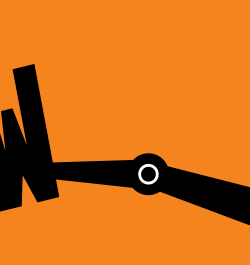











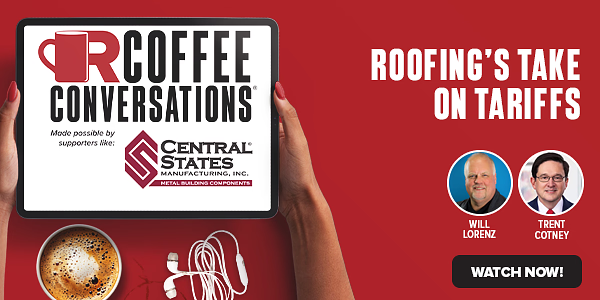
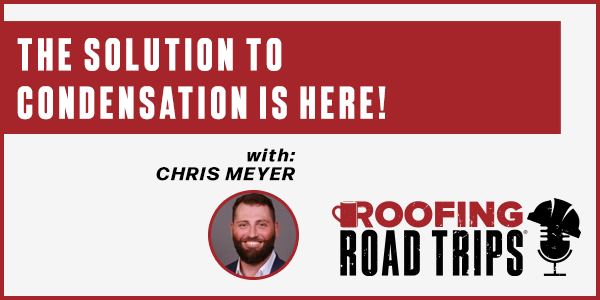
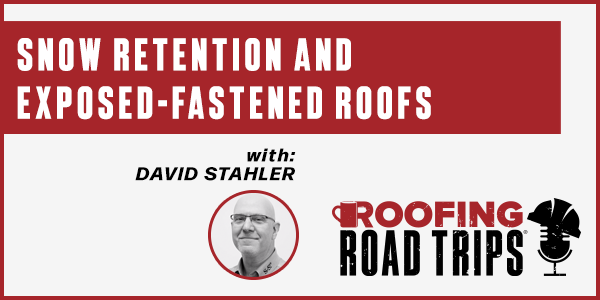




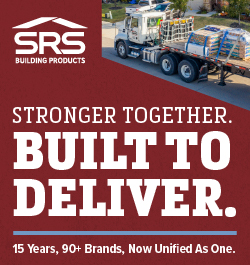
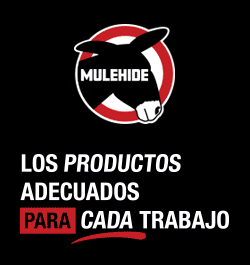

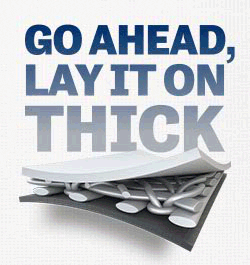
Comments
Leave a Reply
Have an account? Login to leave a comment!
Sign In